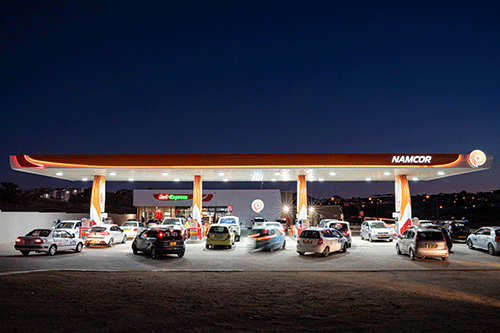A deadlock on dealer margins and a dispute on retail profit encroachment have service station owners threatening to bring the domestic economy to its knees.
And, despite a consultative process between the energy ministry and the Fuel and Franchise Association, government has made it clear that current global and domestic circumstances do not allow it to budge on dealer margins.
“It will, therefore, not be prudent for the government to increase the dealer margin currently. The current economic circumstances in the international oil market and the local Namibian economy cannot positively accommodate an increase in the dealer (or any other) margin currently,” Tom Alweendo stated in a letter to FAFA chairman, Hendrik Krüger.
In the letter dated 11 July 2022, Alweendo acknowledged the harsh economic environment for fuel retailers due to the culminating impact of Covid-19 pandemic and “geopolitical turbulences”. “These occurrences have also placed the government in an unfavourable position of ever rising fuel prices. To contain this, it must be noted that under the current economic circumstances, the government has already implemented cutting the levies of various institutions such as RFA, MVA Fund, Namcor as well as the fuel tax for NamRA to reduce pump prices. The government is also exploring all other avenues to see how best it can reduce fuel prices,” Alweendo stated in the letter.
New Era confirmed the authenticity of the letter with a ministry official who declined to comment any further and said an official media release can be expected soon.
However, no media statement was received at the time of going to press.
In May this year, Cabinet approved the mines and energy ministry’s recommendation to temporarily reduce levies for three months (May to July 2022) by 50%.
Levies that were reduced include the road user charges (from 148 to 74 cents per litre), the fuel levy (from 90 to 45 cents per litre), the Namcor levy (from 7.6 to 3.8 cents per litre) and the MVA Fund levy by 25% (from 50.3 to 37.725 cents per litre).
Last week, during a meeting with fuel industry stakeholders, Krüger said FAFA is not satisfied with government’s “involvement” in the industry through Namcor.
“It comes at our cost,” Kruger said, bemoaning low profit margins for service stations and said in the last four years, they have had no increase.
“Who can survive?” he asked.
Meanwhile, FAFA is concerned about a low gross profit margin of 5%, which is getting smaller as new players enter the market.
With a dealer margin from fuel of N$1.13, some service stations owners say they are facing insolvency and growing debt as from this small margin they have to cover all overheads such as salaries, rental fees and bank charges. Bank charges can be up to 42 cents for every transaction done by debit card.
Said Alweendo: “The ministry is in the process of engaging the Bank of Namibia to see how best commercial banks can be stopped from charging retailers for the swiping of fuel and other related credit and or debit card incentives.”
Meanwhile, Alweendo said the ministry fully understands the pleas of retailers and sympathises with all the retailers in this matter.
As such, he said the ministry will reconsider its position as soon as the market has stabilised and has produced over-recoveries at the pumps. He said only then will a dealer margin adjustment in line with the general inflation rate will make sense.
Alweendo also told Krüger that FAFA may conduct a once off survey, at own cost, to try and establish the base margin and submit the report to the ministry for consideration.
Once the base dealer margin is agreed upon, annual adjustments will then be based on the general inflation rate, Alweendo stated.
Also addressing FAFA’s concerns regarding what they call “unlawful and continuously growing vertical integration” by wholesalers on the retail fuel business, Alweendo reminded them that vertical integration is prohibited by law.
The ministry will convene a joint stakeholders meeting involving FAFA and the wholesalers with the objective of finding a common understanding of the interpretation of the law.
FAFA accused fuel wholesalers of circumventing the retail sector by providing fuel to transport operators and fleet owners.
The energy minister also told FAFA that he does not see Namcor’s participation in the retail sector as conflicting or anti-competitive.
“Namcor is a commercial company that operates on the same footing as other wholesalers. Furthermore, Namcor does not regulate the petroleum downstream sector. It is also important for us all to understand that Namcor as a local brand also plays a catalytic role in improving the Namibian local ownership in the sector whilst still enhancing the security of petroleum products supply in the country,” Alweendo stated.


